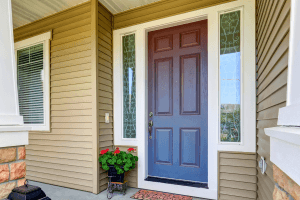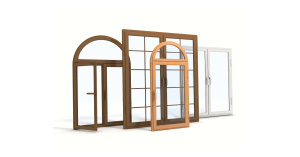Window condensation is the moisture that forms on the inside of your windows. While it might seem to only cause the temporary inconvenience of not being able to properly see out of your windows, it can also cause more serious problems such as peeling, water stains, rotting and mold growth if condensation forms over a long period of time. It is important to avoid condensation from forming as much as possible in order to avoid costly damage to your home.
What are the different causes of window condensation?
- Simple daily living. For example, two people will produce around one gallon of moisture every day!
- Using gas appliances such as stoves, dryers or fireplaces. Boiling water in a pot will also produce condensation, as will running the dishwasher.
- Showering and bathing without a fan. Spas and hot tubs can also be a cause of window condensation.
- Drying clothes indoors
- Using humidifiers excessively
- Having heavy curtains around windows, as they restrict airflow
- Home renovations, painting in particular
- Indoor plants
- Low quality windows
How To Prevent Condensation
The most effective way to prevent condensation is to control the humidity levels in your home. For example, if the temperature drops to -17 degrees celsius, humidity should not be above 25 percent, otherwise condensation and mold will eventually form. Here are some additional tips for preventing condensation:
- Improve the air circulation in your home.
- Allow humidity to escape from your home in the winter months by opening up the windows for a small amount of time.
- Ensure that areas of the home with high humidity, such as the laundry room, bathroom and kitchen, are properly ventilated with ventilation fans.
- Open curtains and blinds during the day (and night, if possible) to allow air to move near the windows.
- Take out interior screens on windows during the winter.
- Ensure that heat registers located in front of windows are not covered by anything.
- Run a dehumidifier (and ensure no humidifiers are running).
- Consider an in-house air exchanger system (HRV).
If the following tips do not help with preventing condensation, you will want to invest in new windows. Consider Canglow Windows and Doors. We are a Canadian, family-run business with in-house manufacturing—meaning that every window can be customized exactly to your needs. Our windows are 100% lead-free uPVC. We also offer expert installation each and every time. Contact us today for a free estimate.

